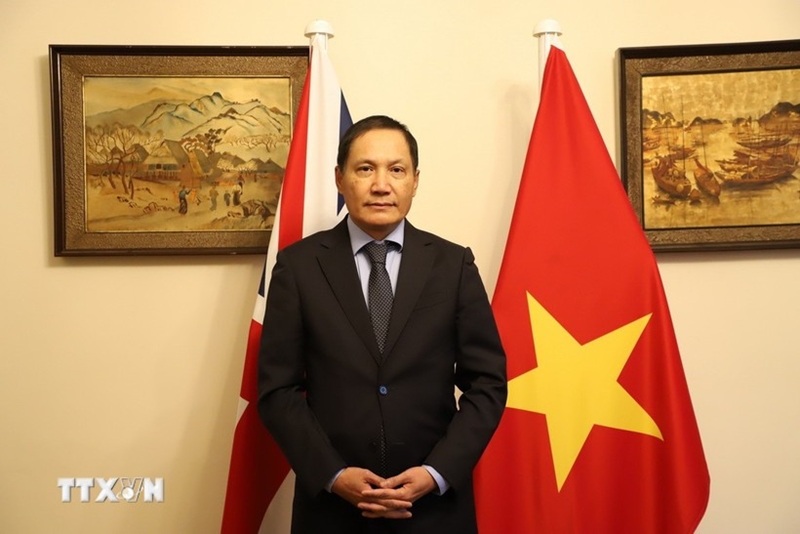This is the first visit by a Vietnamese Party General Secretary to the U.K. in 12 years, coinciding with the 15th anniversary of the establishment of the Strategic Partnership between the two countries (2010 - 2025). It also comes at a time when both nations are actively promoting multifaceted cooperation within the framework of a highly successful Strategic Partnership in recent years.
    |
 |
|
Vietnamese Ambassador to the U.K. Do Minh Hung |
The trip holds great significance, offering an opportunity to exchange views and reach consensus on directions to further strengthen and elevate the bilateral relations in the coming period. This will enhance political trust and improve the effectiveness of cooperation in traditional areas such as trade and investment, education and training, and science and technology, while helping expand ties into new fields where the U.K. has strengths and which align with Vietnam’s development needs, including finance, high technology, strategic infrastructure, green energy, and sustainable development, Hung said.
During the visit, General Secretary Lam is expected to hold talks with British Prime Minister Keir Starmer, and meet with leaders of the U.K. Parliament to discuss and agree on measures to further strengthen the Strategic Partnership. He will also attend and deliver a keynote speech at a high-level economic conference with major British businesses to enhance cooperation in the fields of finance, banking, energy, science and technology, and green development.
At the University of Oxford, the U.K.'s leading research and training center, the General Secretary is expected to give an important policy speech on the vision for the Vietnam - U.K. relationship framework and Vietnam’s innovation efforts, along with its development direction in the new era of the nation’s rise.
The Party chief will also meet with representatives of the Vietnamese community in the European country, the ambassador said.
This time, both sides are expected to sign and approve several important cooperation documents in such areas as politics and diplomacy, economy and trade, science and technology, green transition, and sustainable development. Numerous collaboration agreements between universities and businesses will also be inked, opening up significant opportunities in education, research, finance, banking, and healthcare which the U.K. excels and that align with Vietnam's development priorities.
According to the diplomat, the Vietnam - U.K. Strategic Partnership is currently in an extremely positive phase of development, with a lot of notable achievements in bilateral cooperation, as well as effective collaboration at multilateral forums and international organizations.
Two-way trade hit a record high of 8.4 billion USD in 2024, a year-on-year rise of 18%. The two countries are striving to raise this number to 10 billion USD in the coming time. The U.K. is currently Vietnam's third-largest trading partner in Europe, while the latter is the former’s biggest trading partner in Southeast Asia.
As of 2024, the U.K. had invested in 587 projects in Vietnam, with a total registered capital of nearly 4.46 billion USD, mainly in the fields of finance and banking, information technology, manufacturing, renewable energy, and services, including education, healthcare, transport and real estate.
Educational cooperation has been a bright spot in the Vietnam - U.K. Strategic Partnership, laying a solid foundation for developing high-quality human resources to meet the challenges and requirements of the global era of technology and innovation. Currently, around 15,000 Vietnamese students are learning at universities, colleges, and schools across the U.K.
To further promote cooperation in education and training, the ambassador proposed both sides expand academic exchange programs, develop interdisciplinary research projects, and organize specialized seminars to share knowledge and practical experiences. Additionally, enhancing the training of high-quality human resources through joint training programs, and student and expert exchanges between universities and educational organizations will be crucial.
Source: VNA